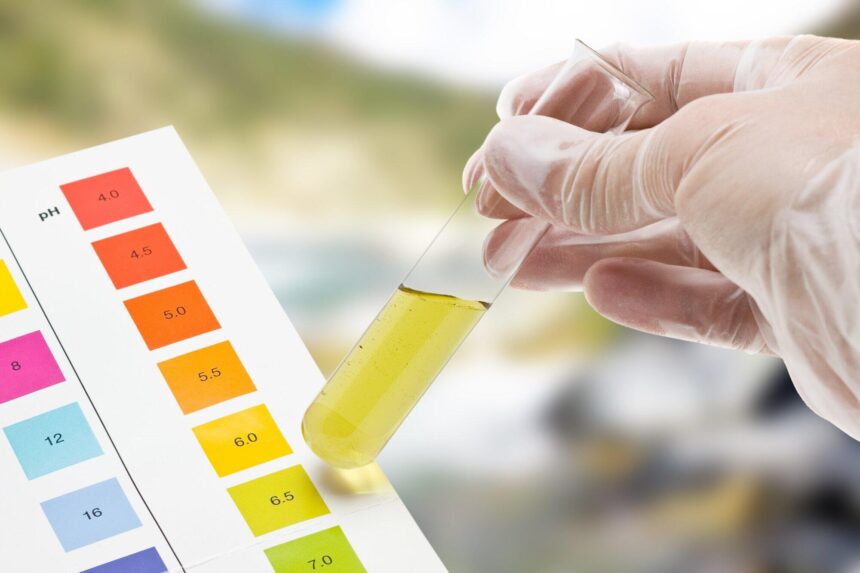Water quality is a topic that often slips under the radar, but did you know it can impact your health? Whether it’s the water in your home or the water used in a commercial setting, ensuring its safety and purity is crucial.
- Types of Water Testing
- Biological Testing
- Chemical Testing
- Physical Testing
- Mineral Testing
- Radiological Testing
- When to Hire a Certified Water Tester
- When Purchasing a New Home
- After Experiencing Sudden Changes in Water Quality
- When Using Well Water
- During Pregnancy or if Caring for Infants
- Before and After Installing a Water Treatment System
- Learning Types of Water Testing and the Importance of Hiring a Water Tester
But how do you know if your water is safe? It is where the expertise of a certified water tester becomes invaluable. We will explore the different types of water testing and guide you on when to consult a professional water tester.
Types of Water Testing
There are various types of water testing, and each one serves a unique purpose. Let’s take a closer look at the most common methods used to test water quality.
Biological Testing
Biological testing assesses the presence of microorganisms in water. It includes bacteria, viruses, and parasites that can cause diseases. It’s vital for residential and commercial water sources.
For instance, E. coli is a common bacterium tested for. It indicates sewage or animal waste contamination.
In areas close to wildlife or agriculture, biological testing is especially crucial. It helps ensure that no harmful pathogens are present.
Drinking or using contaminated water can lead to serious health issues. Diarrhea, cramps, and more severe illnesses can result from exposure.
For homeowners using well water, annual biological testing is recommended. It ensures the water remains safe for consumption.
Chemical Testing
Chemical testing is crucial for identifying the presence of harmful chemicals in water. These can range from heavy metals like lead and mercury to pesticides and industrial pollutants.
Chemicals can pose a risk, even in small quantities. They can accumulate in the body over time, leading to long-term health issues.
This type of testing is essential for residential areas and commercial establishments. For instance, old plumbing systems in homes might leach lead into the water supply.
Meanwhile, farms and factories could introduce pesticides and waste into nearby water sources.
Chemical tests help ensure water meets safety guidelines. They identify pollutants that could harm human health.
Regular testing is advised, especially in areas prone to industrial contamination. It safeguards against chronic conditions like cancer and developmental disorders.
Physical Testing
Physical testing analyzes the physical characteristics of water. It includes temperature, color, turbidity (cloudiness), and odor.
These aspects are critical, as they can affect water’s safety and usability. For example, high turbidity might hide harmful microorganisms or chemicals. Water that has an unusual color or odor may indicate pollution.
Physical testing is simple but revealing. It can identify issues like sediment buildup, which affects water clarity and taste.
This form of testing is essential for both household use and industrial applications. It ensures water is not only safe but also pleasant to use.
Routine physical testing is advisable after heavy rainfall or in areas with high industrial activity. It can detect changes that might not be visible to the naked eye but could impact water quality.
Mineral Testing
Mineral testing focuses on identifying the concentration of essential and non-essential minerals in water. It includes calcium, magnesium, sodium, potassium, and many others. High levels of certain minerals can affect water hardness, taste, and safety.
For example, high calcium and magnesium levels lead to hard water. It may not be harmful to health, but can damage appliances and plumbing. Excessive amounts of non-essential or toxic minerals like arsenic or lead are hazardous to health.
These can cause serious problems, including kidney damage and neurological disorders.
Mineral testing is key for households relying on well water or in areas with mineral-rich soil. It ensures that the water is not only safe to drink but also beneficial for health.
Radiological Testing
Radiological testing evaluates water for radioactive substances. These substances can originate from natural sources or human activities. For example, uranium in the soil can leach into groundwater.
Nuclear power plants may release radioactive elements into nearby water bodies. Exposure to high levels of radiation from water can lead to severe health issues. These include cancer and defects in future generations.
This testing is crucial in areas near nuclear facilities or with high natural uranium deposits. It ensures that water does not pose a radiological risk to users.
Since the effects of radioactive contamination can take years to manifest, regular radiological testing is critical. It prevents long-term harm.
Homeowners and commercial operators alike should consider this test to protect their health. Consulting a certified water tester for radiological analysis is a step toward safety.
When to Hire a Certified Water Tester
While physical testing may give you a general idea of your water quality, it’s crucial to hire a certified water tester for more accurate and comprehensive results. Here are some instances when hiring a professional becomes necessary:
When Purchasing a New Home
It’s crucial to test the water in your potential new home. It is to ensure that it meets safety standards. It is crucial if the property relies on well water or has a history of contamination.
After Experiencing Sudden Changes in Water Quality
If you notice changes in the color, taste, or odor of your water, it’s recommended to seek professional testing. These changes could indicate contamination or damage to plumbing systems.
When Using Well Water
Private wells are not regulated by the government and need regular testing to ensure safe drinking water. Engaging water testing services can help in monitoring the quality of well water and identifying any potential contaminants.
During Pregnancy or if Caring for Infants
Pregnant women and babies are more vulnerable to contaminants in water, making it essential to test for their safety. It includes checking for lead, nitrates, and other harmful substances.
Before and After Installing a Water Treatment System
Testing before and after the installation of a water treatment system can confirm its effectiveness. It also avoids potential health hazards caused by improper installation or malfunctioning systems.
Learning Types of Water Testing and the Importance of Hiring a Water Tester
Understanding the significance of different types of water testing is crucial for ensuring water safety in any setting. Whether it’s for residential use or a commercial facility, the expertise of a certified water tester can provide peace of mind.
From biological to radiological assessments, these tests reveal essential insights about water quality. Regular evaluations by a skilled water tester are key to maintaining health standards and protecting yourself and others from potential harm.
Did you find this article helpful? If so, check out the rest of our site for more informative content.















